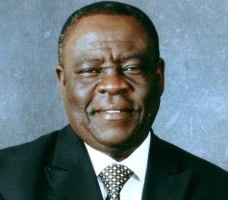Teachers have been urged to go the extra mile from the normal theoretical syllabus to be able to link subject areas taught in school to business.
Dr. Michael Agyakum Addo, Director-General of the KAMA Education Programme (KEP), speaking in an interview with the B&FT said teachers should acquire entrepreneurial skills and impart these to students.
He proposed that entrepreneurship should be taught as a course at all the Colleges of Education to equip trained teachers with entrepreneurial skills. He added that having a change of mindset, and not giving the students only theories but relating the subjects to practical business, will develop the students to come up with business ideas.
“If you are teaching English, ask yourself how the subject is related to business. Nothing stops the teacher from taking the students to television studios or media houses to study how newscasters read the news, or to bring presenters into the classroom to interact with them."
Dr. Agyakum believes this can go a long way to reduce the high graduate unemployment facing the country, as many of the students will come up with ideas to create their own businesses rather than to go looking for jobs.
According to him, his education programme -- whose aim is to inculcate entrepreneurship skills in teachers and students, has already spoken to about 12,000 teachers and 400,000 students across the country.
Dr. Agyakum’s views are in sync with many experts in academia who stress the need to narrow the gap between industry and tertiary education to enable institutions churn out employable graduates for the job market.
Recently among them is Prof. Kwesi Yankah, President of the Central University College, who said there is a vital need for tertiary institutions to collaborate with industry to improve graduates’ skills and eradicate rising unemployment.
He said such collaboration will ensure that students have first-hand practical experience in the world of work, enabling them to appreciate what is being taught in the classroom. He called for an end to the “all-theoretical” educational system in the country, whereby students are inundated with irrelevant theories that have no connection to the workplace.
A report from the National Council for Tertiary Education said there are only 40,000 new jobs for the 66,500 graduates being churned out from the country’s tertiary institution each year -- suggesting that 40 percent of fresh graduates face possible unemployment unless they create their own jobs.
The report said despite the increasing publicity given to entrepreneurial development in the country, an overwhelming majority of graduates from tertiary institutions look for jobs in existing formal institutions and companies rather than starting their own businesses.
Business News of Wednesday, 16 October 2013
Source: B&FT
Link subjects to business - KAMA boss urges teachers

















